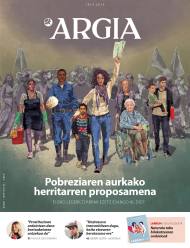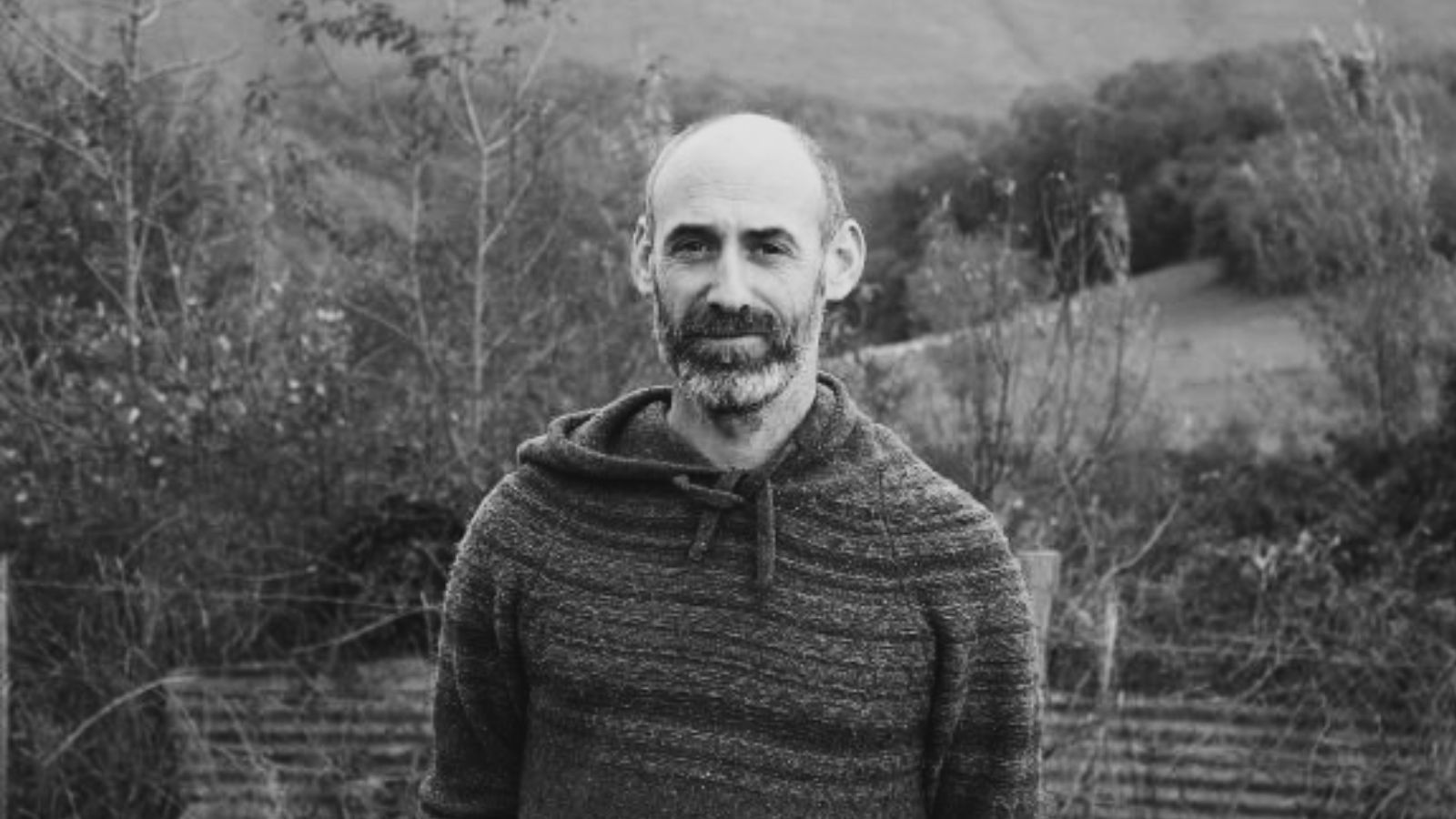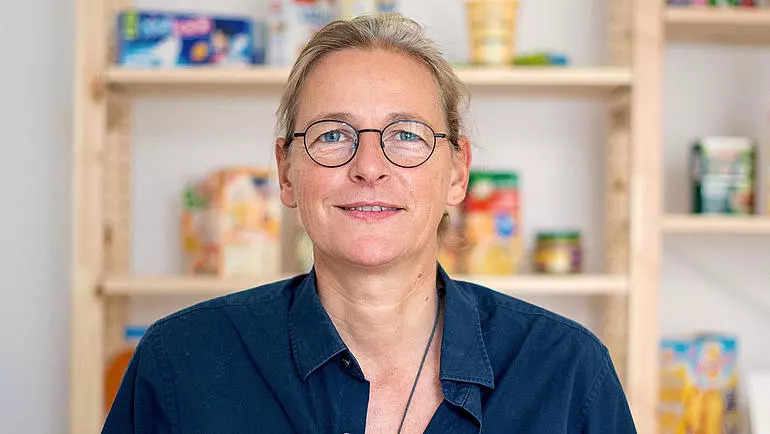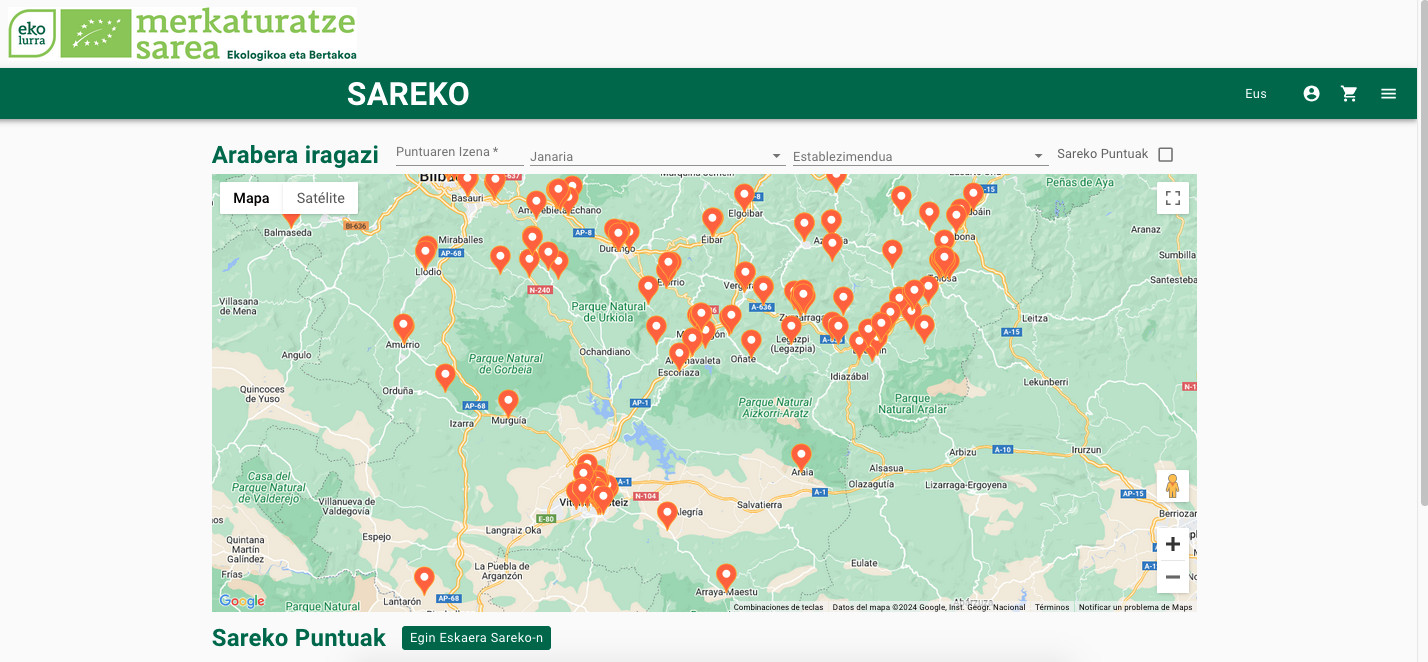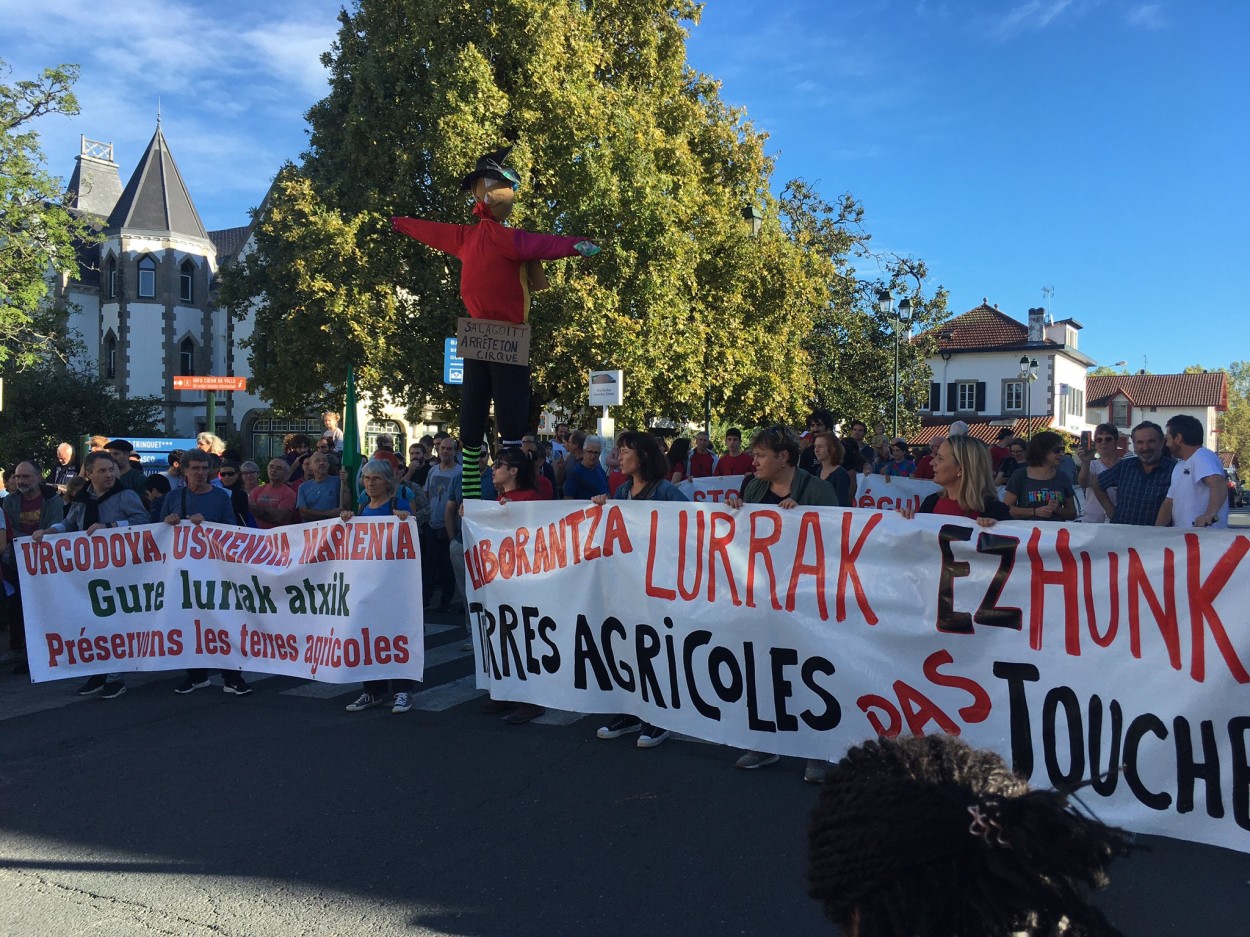"The people of the world have changed more than the world itself"
- ARGIA celebrates its centenary, 89 years old Leonet, who has gone through the Epixkar and Barin de Rentería villages without any kind of vascuence and no other language. One of the last mohicarras, curious guardian of the sweat of the veins of our tongue.
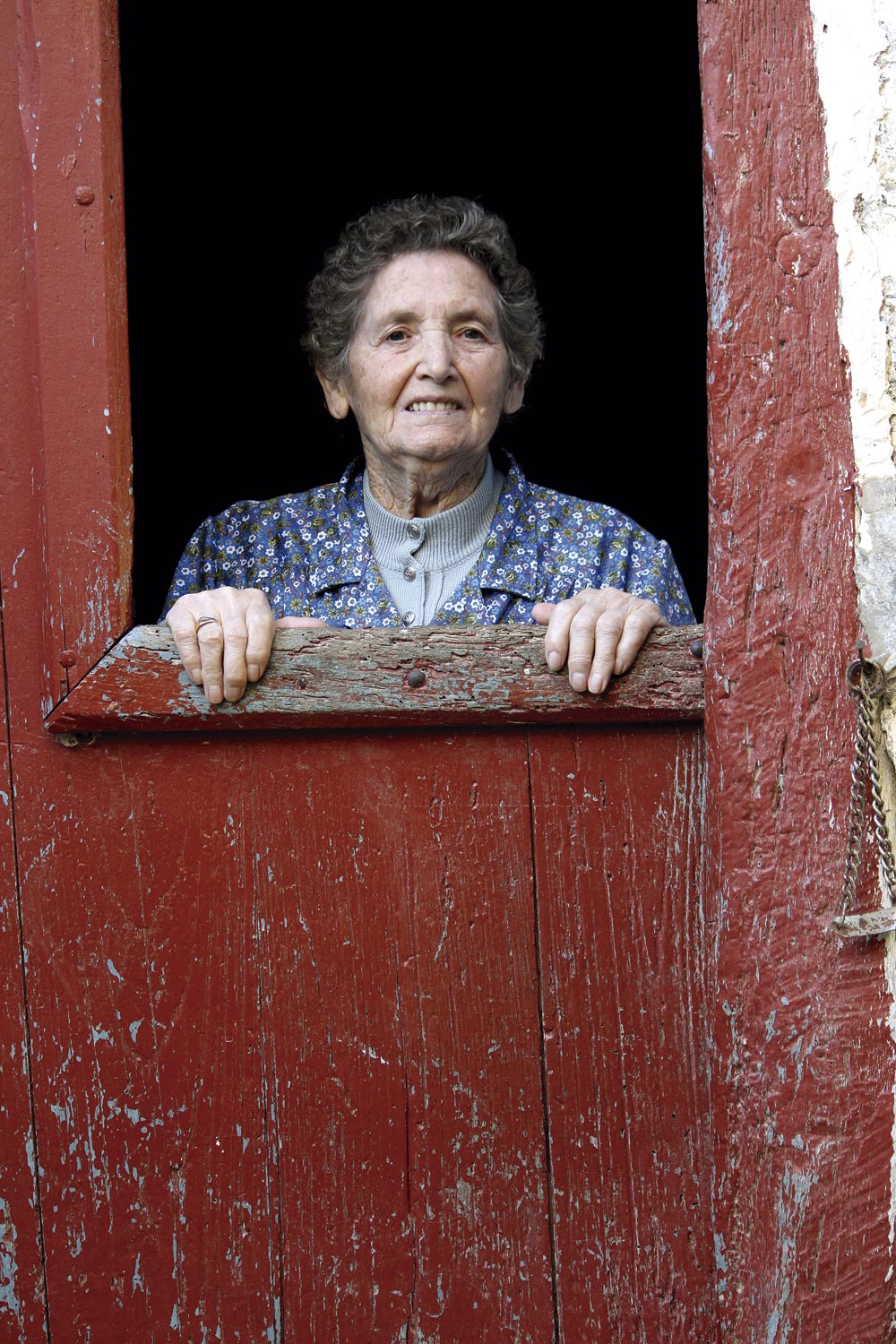
Epixkar baserrian jaio eta hazia, Barinera ezkondu eta bertan egin du ondoko bizia. Baserria izan du etxe eta mundu, erakutsiz emakumearen lan bukaerarik gabekoak eutsi diola baserriari, bere buruari begiratzen ibiltzeko tarterik gabe. Euskara beste hizkuntzarik ez zen mendian gora sortua, kantu bihurtua du Leonetek gure hizkuntza, margolariaren kolore-paletaren jabe egina.
You laugh! [Look at the recorder]
We have never seen such a beautiful thing! Give joy, joy, it's nice!
You haven't been born in this Barin farmhouse.
No, I was born in Epixcar, from now on. A new house has been built there.
How many were you in Epixcar de Errenteria?
A lot! We were sixteen brothers, but now we live only three. We were all there. We made some corn and we ate the cake. Potage and talo were our food. And finally, quite a lot. There was nothing else to eat. I was born in the 30s and 50s, and more, we ate talo. And yet, when we ate the stalk, we were happy.
Was there a school?
Yeah, we took the race out like this, going to school. [Laughing] But we learned. The doctrine, from one end to the other. She was an old woman, and he taught us. And I learned to add, subtract and divide. In Spanish, not a word. We didn't learn. We were in school until about nine years ago. Little. Take the horch and the oxen to the field. In the farmhouse, it was all work. Yes, the work was created, as if there was nothing else.
Had the noise of war come to Epicarmes?
No, nothing! We mocked soldiers. But we weren't at home. We had another house in Aldura, and look. There were soldiers in our house. I don't know if they were required or what class they were, but they at Epixcar, and we at Aldura, I don't know how many families we were there. We were a few, four or five families. But there it was a lizard and we slept on the lizard. There were shots. They were passing over us. Fiiiii! There was no death among us, but there was a prison. My father was incarcerated. While the cows were being taken off, they took him and put him in jail. I remember the beautiful anguish that the others came and gave to the door. They were sick. There had been a lot of things, yes.
Who are you in contact with on this surface?
With no one. This is the mountain. In any case, with Oiartzun. This is Errenteria, but where is Errenteria from here? Far away.
Was it smuggling at this point?
Yes, yes… We had grass on the hip and a great fear, go find the grass and take the load there. Anyone used to be there. They were also engaged in the smuggling of oxen. I met those who had put me in the smuggling. He was a shambelan. A Patxi, the blonde, was terribly tough. I think she was shot to death, I wouldn't say it for sure, but I think so. I don't know what they were going, whether coffee or who knows. They were walking, yes. My aunt Ernénica fed them in the basement, near the cattle. My aunt was on sale. I would go up there, and if it felt like something else, I would jump out the window of the winery.
Born in Epixcar, Barin married this dwarf.
At 27 years old. I met the man in this same house. I came to cut the fern, to help me. Then he himself told me that he wanted to see me, that he wanted to end me. "We'll see! I said. We meet and we take each other very well. Sometimes we got angry, it wasn't beautiful, but sometimes you have to get angry. 26 years ago I was jealous and now I am here.
They told me that you are free.
Your legs can't run, right? There is a big difference! But I'm still walking, going and coming to the orchard. At least, walk.
I would go to the orchard and come, but not to walk, but to work.
Working? The lettuce is there in the kitchen, in the garden, which I did. And the chickens. Eight chickens, to which I dedicate myself, fluttered, very comfortable. I like to pick up eggs, but I don't make them too much. Ja, ja…
Work by Epixkar, work by Barin…
But there was a lot of work in Epixcar. You had to walk further through the healing zone. But here, too, there was work. At least, it was enough for me. As soon as I got here, I noticed that I washed my clothes. There we washed our clothes and headed to the river below. We had a mule and we put the clothes on top of a mule and on the river. She would go in clothes and feel jealous. We were walking by step. When I got here, the beautiful fountain was warm and moistened. The manger was also beautiful. It was hard work. The man had been very damaged, but he was still happy. We started going to meals at 9 years old in Epixcar. From there we got to Barin and we kept eating, but the work here was softer than there.

What were your relatives in?
What my mother was doing was sending the nun as much as she could. My mother also said it to me, but not. I didn't want to. What to do when I left? My mother said a lot, but I don't know how she wasn't. Three sisters left. We belonged to two mothers. Two sisters from one mother, three from the other. One of the sisters said she had to go to Rome, she wanted to enter the nun, but they didn't catch her anywhere. Finally, he settled in San Sebastian, where he spent his life. In addition, they appreciated him. He was a cook. The other two, on the other hand, were in Cañas, Logroño. XI. A woman, extremely wounded, approached a tree and said to her, 15th century Cistercian monastery]. They also made an abbess. When the first one died, the other became abbess. One was a nun at the age of 16; the other at the age of 18. There was a terrible job done in the convent. They worked with the cows, the pigs. Then, in ceramics. They were very strong and had learned a lot. There were also two friars to Arantzazu. The monks came begging and needed one to help them, and a brother of ours departed with them. He left, but he couldn’t in Arantzazu… he was missing mother and father, and returned home. He was not another brother, but Calahorran, the other brother.
The Church has promised a great deal.
My mother just told me to go to church. I was leaving before, from Epixbarri. Not now. In an hour, an hour and a room we entered from Epixcari to Oiartzun Street, rushing. Back, we needed two. We were also going to dance, to the Txikierdi, but we had to go home and the others would dance and we would go home, without hearing anything. We also did romerías. A guy was approaching the floor of Epixkal to the sound. He played the prim-prum, the prim-prum, and we danced!
You went to the nearby cottages to help you at work.
Yes, in artajorran. They also gave us a snack and we were content. Maybe we were given two salaries. We went to the mischievous and the surrounding villages. To Artajorra, or to pick up the apple… And we put the seed in the pocket, and the grandmother is puffing behind.
He says they were given two salaries. There wasn't a lot of money in the house...
Do you see the money? I don't know when I saw the first eighteenth on our farm. It's hard to say. They would go to Artajor and give us the money, but we had to take it home, give it to the parents. If not… In the farmhouse there is no money. They would go to the street to sell the chicken and bring the old sardine.
"We also met the woman who was coming to throw her chest, the Ramuna of the farmhouse Portugal"
You knew the umbrella at full speed.
Yes. When a mother had a family and the child was fifteen days old, all the old people gathered together. And there was something that was eaten, and the juerga sprouted! It was very nice. We were in the tertulia. Another was the proclamation. Some gave a snack before getting married. That was even more joyful. Proclamation. They're old stories. And we also met the woman who was coming to throw her chest, Erramuna from the farmhouse Portugal. I was coming to flush our chest. My mother, on the other hand, my father flushed her chest. To me, on the contrary, that woman came to me… The Laurel of Portugal, a beautiful woman, very servile and joking, died. The sound rang. He would play the bell and he would start dancing. I only knew one piece: fun-da, fun-da, furrui -- fun-da, fun-da, furrui -- but we couldn't dance with the kids because it was a sin. Always without touching. And also in the church, apart. The priest had separated the two husbands who were sitting next to each other in the church.
Even if they're married?
Yes! He was my brother, his wife, who had left for Logroño on the novice journey. When they were in the convent of Cañas, the priest set them apart in the church. That's what our life has been like. And now, too, that. I still make some lemon in the orchard, walk around at dusk, say the rosary… Before, with the house, we put it on the ladder and said the rosary. Now, I just have to say, because nobody helps me.
You've always lived in the countryside, almost without the street.
We went down, yes, to the orders, with the bags on the back. We were in a nightmare, because there was no car and there was no way. The same priests came here to eat. And the doctors, and we also fed them. Also bertsolaris, overboard. They've come here. Yeah, there were people around here. Barin is separated from the street. We're at Errenteria, but there's the border with Oiartzun, and Oiartzun comes here all across. My sister lived in Belastegi farmhouse, and she had half my house in Oiartzun and half my house in Errenteria. You've just arrived from Belastegi. The new house was built in the countryside.

And when I went down to the street for orders, I didn't need Spanish?
Yes… But in “You don’t know, you don’t know” and we were moving forward. We got along. Now I also keep television in Basque, when there is a program, news, if there is a film…
Basque.
Yes. Spanish no. I don't know. Oiartzun is very Euskaldun, but a lot of kastellano has entered.
The world has changed a lot since then...
Yeah, that's it. The world -- or the world's have changed? I don't know for sure, but I would say that the world has changed more than the world itself. I guess the world will be like before, but the world won't.
“Lehenbizi, errekara eraman behar izaten genuen arropa. Han busti eta xaboitu. Etxera etorri, kuela [lixiba-ontzia] jarri eta arropa kuelan sartu. Ura irakin, eta denbora batean lixiba hautsa izaten zen hemen, hauts hura bota goiti eta beheiti. Zuloa izaten zuen azpian kuelak, eta zer egiten genuen? Azpian bazina jarri. Hura ateratzen zenean, berriz ere irakin eta ura bota. Oso usain ederra izaten zuen. Gero, berriz ere errekara eraman, berriz garbitu, eta arropa zabaldu. Hilean behin egiten genuen gobara, ez astero”.
“Zaldiarekin eta idiarekin joaten ginen, otea ebaki, zama egin, zama hartu bizkarrean, eta etxera zazpi itxaronalditan Iruritatik [Nafarroa]. Zazpi itxaronalditan. Gosea. Eta sardina errea sartu talo erdian, eta etxetik atera eta segituan jaten genuen hura. Guk ekartzen genuen gosea! Otaxka makinan jotzen genuen, traza jartzen genuen gainetik, eta tikiti-taka, tikiti-taka, aletzen genuen otea. Bi edo hiru aritzen ginen hartan”.
“Berriz jaioko banintz ez nuke egingo egin dudana baino. Ez dut espero. Lau seme-alaba hazi ditut. Gizona gerran hondatu zen eta horrekin nahiko lan ibili nuen. Haren beharrak egin nituen, hala ere. Zer gehiago egin behar dut? Seme-alabak zein baino zein, suhiak eta errainak… Egin dudana baino gehiago ezin egin nik”.
Ostegun arratsean abiatu da Lurrama, Bidarteko Estian egin den mahai-inguru batekin. Bertan, Korsika eta Euskal Herriaren bilakaera instituzionala jorratu dute. Besteak beste, Peio Dufau diputatua eta Jean René Etxegarai, Euskal Hirigune Elkargoko lehendakaria, bertan... [+]
The two main voters in Kanbo (the mayor and the prime minister) are the rabid ones. Three citizens have been beaten with a plainta, for protesting in favour of the eviction of the neighbor Marienea.Es the second time that, at 06:00 in the morning, they take us out of bed (with... [+]









